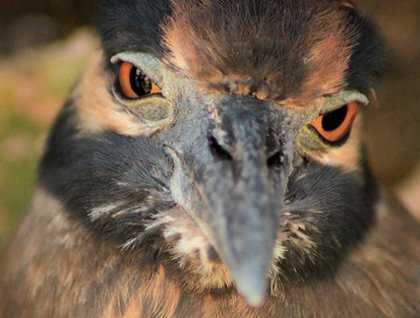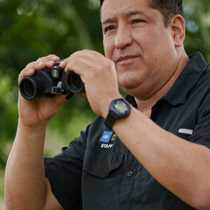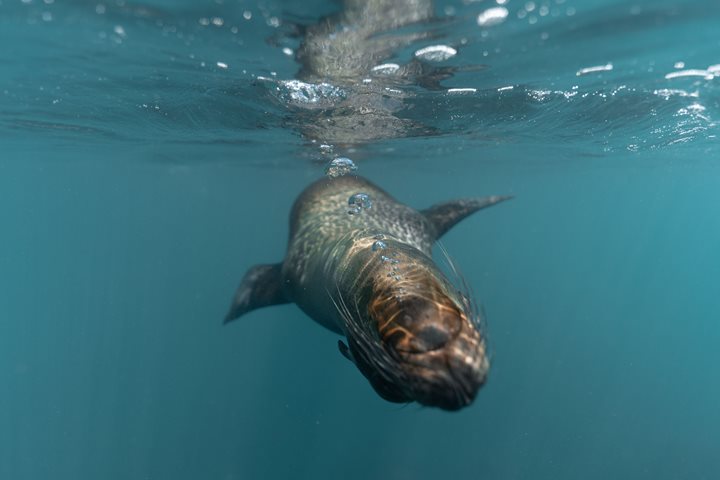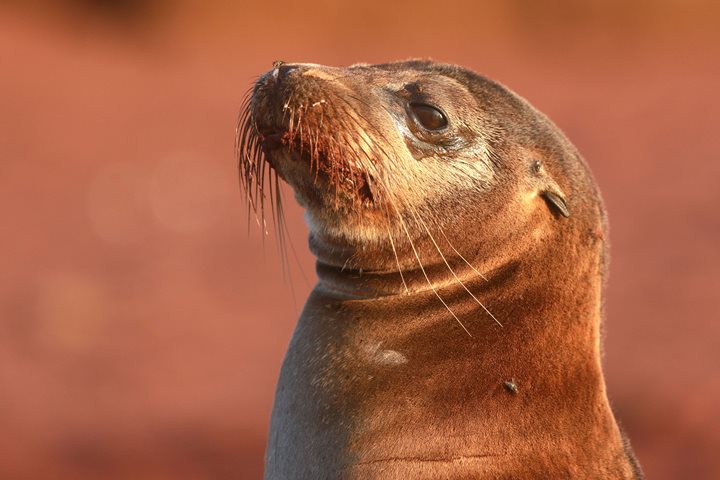We spent the last day of our expedition this week in one of the most idyllic and remote islands of the Galapagos archipelago, Genovesa. This small island is just 5.4 square miles, and is home to hundreds of thousands of birds.
Shortly after dropping anchor inside the crater of an extinct volcano, we started our day with a pre-breakfast kayaking outing with an exquisite combination of volcanic landscapes and wildlife sightings.
After breakfast we set foot on one of the most pristine islands in the archipelago. We were welcomed many birds species including great frigatebirds. Red-footed boobies were also a highlight. This species is the smallest and least often seen of the three booby species that inhabit the Galapagos. It is, however, the most abundant of the three, but the colonies occur at the edges of the archipelago. Swallow-tailed gulls, lava gulls, yellow-crowned night herons, mockingbirds, Darwin finches, and even a short-eared owl were among the other species that accompanied us during our visit.
Our guests enjoyed the most fantastic profusion of colors, shapes and textures in exotic bird species as they observed the most wonderful nature show taking place in front of their eyes. Animals continued going about their normal lives—attentive bird parents caring for their chicks, for example—without showing a single trace of concern at our presence.
In the plant world we found on Genovesa an endemic prickly pear cactus species (Opuntia helleri) that is very peculiar. Its spines are soft like hair; its fruits grow close to the ground. These traits suggest something amazing. The cacti on this island do not have predators and facilitate their pollination by their lack of stiff spines. These cacti are living proof of evolution and adaptation in the botanical world. Astounded guests can “pet” the cactus with amazement and curiosity.
At the end of the day, it is very rewarding for me as a naturalist to hear the most superlative comments about the beauty of the island and its inhabitants. “This has been one of the most wonderful places I have ever been,” one guest said. “The most beautiful and elegant bird I have ever seen,” said another. These are just examples of the enriching and sometimes life-changing experiences that the Galapagos can provoke in its visitors on a day like today.
The expedition around this magical archipelago is over, but the feelings and memories will remain in the hearts and minds of our visitors forever.







